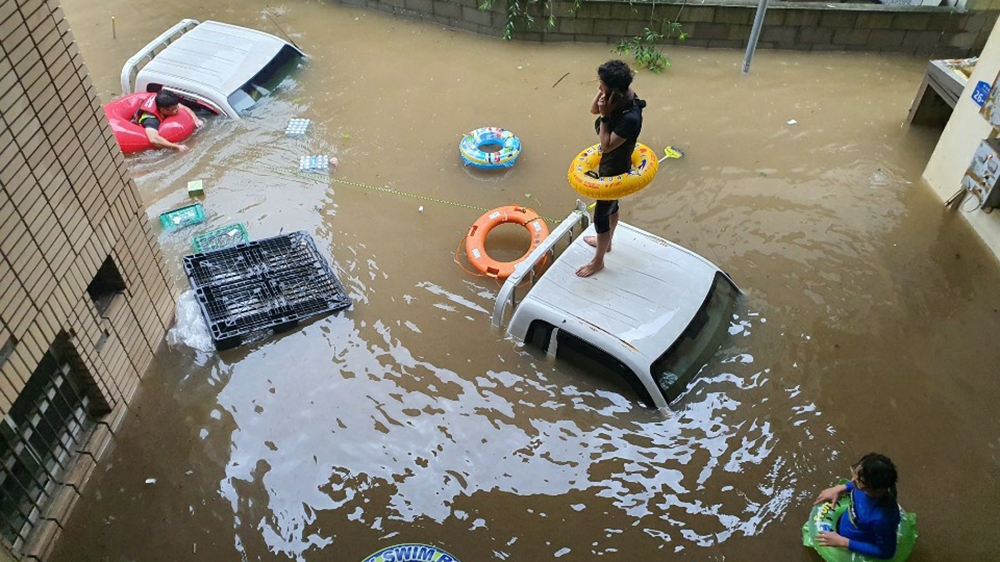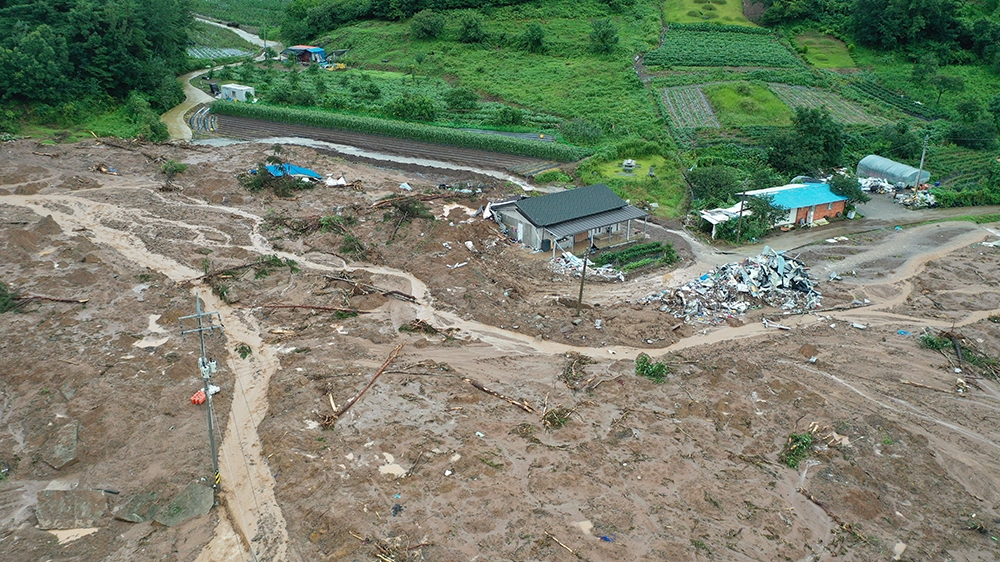At least 30 people have died, and 12 remain missing after 46 days of heavy rains in South Korea, with the country’s longest monsoon in seven years causing more flooding, landslides and evacuations on Sunday.
Close to 6,000 people had also been evacuated as of Sunday, according to the country’s Yonhap news agency, as rains battered the southern part of the Korean Peninsula.
Yonhap also quoted the Central Disaster and Safety Countermeasure Headquarters as saying that at least eight people have been injured in the disaster.
The death toll did not include the casualties from three capsized vessels at Uiam Dam in Chuncheon, 85 kilometres (53 miles) east of Seoul, which left three dead and three missing on Sunday. It was categorized as a marine accident.
More than 5,900 people from 11 provinces and cities left their homes, and some 4,600 of them remain at temporary shelters following warnings of disasters, according to Yonhap.
An estimated 9,300 hectares (22,980 acres) of farmland were swamped or buried, while 9,500 cases of damage to public and private facilities were reported.
According to Reuters news agency, about 100 metres (109.36 yards) of levee also collapsed at the Seomjin River in the southern edge of the peninsula on Saturday and flooded the area, with about 1,900 people evacuated in the province including about 500 from around the river.
The country’s forestry agency has raised landslide warnings to its highest level in every region except the holiday island of Jeju.
Five homes were buried in a landslide on Friday from a mountain behind a village in Gokseong, South Jeolla province, killing five people. Three people have been rescued.
Twelve local flights were cancelled at the regional Gwangju airport near the southwestern tip of the peninsula after the runway was flooded, according to Yonhap news agency.
The city of Seoul warned people to stay away from basements, valleys and rivers as further torrential rains were expected on Saturday night.
South Korea’s longest monsoon on record was 49 days in 2013. Current weather forecasts predict that this year’s monsoon may last longer.
Jangmi, the season’s fifth tropical cyclone, is expected to hit the southern region of the Korean Peninsula from Monday, bringing about more rain in the flood-hit areas.
Formed early Sunday southwest of Okinawa, the cyclone is moving northeast and expected to pass waters off Jeju Island mid-morning on Monday, according to the Korean Meteorological Administration.
In neighbouring North Korea, state media Korean Central Broadcasting also warned of additional heavy rains in areas already hit by floods, according to Yonhap.
Following leader Kim Jong Un’s flood relief inspection reported on Friday, KCNA said on Saturday that Pak Pong Ju, vice chairman of the state’s highest decision-making commission, inspected damage to submerged fields and crops in southwest regions of the country.
Credit: Source link


